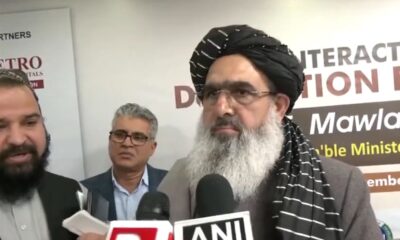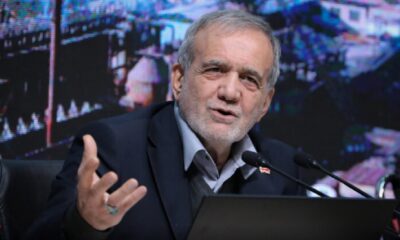Latest News
Pakistan rejects reports of new US military base on its soil
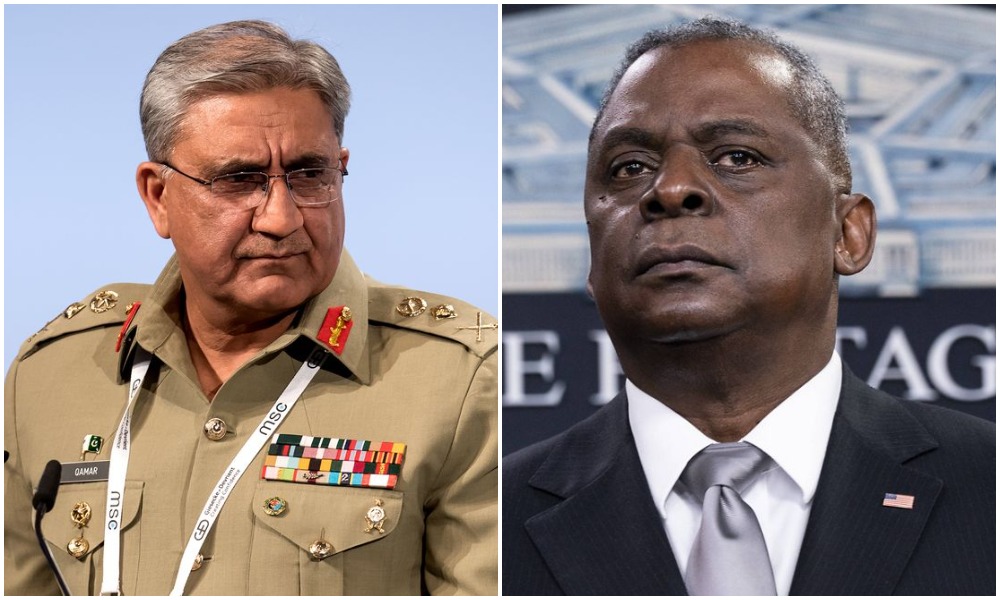
Islamabad on Monday rejected reports of the US military setting up a base inside Pakistan as it withdraws troops from Afghanistan.
“There is no US military or air base in Pakistan, nor is any such proposal envisaged. Any speculation on this account is baseless and irresponsible and should be avoided,” Pakistan’s Foreign Office spokesperson said in a press release.
He further said Pakistan and the US have a framework of cooperation in terms of air lines of communication (ALOC) and ground lines of communication (GLOC) in place since 2001. “No new agreement has been made in this regard,” he stated.
This comes after reports emerged this week that Pakistan has allowed the US to use its airspace and ground access.
David F Helvey, Assistant Secretary of Defence for Indo-Pacific Affairs, told the US Senate Armed Services Committee last week that the United States would continue its conversation with Pakistan because it had a critical role in restoring peace to Afghanistan.
“Pakistan has played an important role in Afghanistan. They supported the Afghan peace process. Pakistan also has allowed us to have overflight and access to be able to support our military presence in Afghanistan,” Helvey had told the committee.
“We will continue our conversations with Pakistan because their support and contribution to the future of Afghanistan, to future peace in Afghanistan, is going to be critical,” he had added.
Sources meanwhile, told Ariana News on Monday that US forces have begun construction of a large military base across the Durand Line.
According to the sources, the base is being built at the Shalozan Kurram Agency area in the Tribal Area inside Pakistan – in the Zazai Aryub district which borders Paktia province in Afghanistan.
Members of the Paktia provincial council told Ariana News that the base is under construction 8km from the Durand Line inside Pakistan and “supplies are being delivered via air and ground every day.”
Colonel Sonny Legget, a spokesman for the US Forces in Afghanistan, however, rejected these reports.
Meanwhile, the National Security Advisers of Pakistan and the United States met in Geneva on Monday.
The meeting between Pakistan NSA Moeed Yusuf and his American counterpart Jake Sullivan is the first in-person high-level contact between the two countries since the Biden administration assumed office in January.
“Both sides had a positive conversation on a range of bilateral, regional, and global issues of mutual interest and agreed to advance practical cooperation on these issues,” Pakistan’s Daily Times reported.
In a tweet, NSA Yusuf said he was “pleased to meet US NSA @JakeSullivan46”, adding that the Pakistan and US delegations had held positive discussions on a range of issues.
The NSAs’ meeting comes days after Foreign Minister Shah Mahmood Qureshi told US lawmakers that Pakistan was seeking a broad-based, strategic partnership with America, which would also cover Afghanistan.
In virtual meetings with members of the House of Representatives and the Senate, the foreign minister invited a group of 15 US lawmakers to visit Pakistan in June for consultations with their Pakistani counterparts and officials on how to improve bilateral relations.
On Monday, however, US Secretary of Defense Lloyd Austin had a phone conversation with Pakistan’s Chief of Army Staff, General Qamar Javed Bajwa.
According to a US Defense Department statement issued by Pentagon Press Secretary John Kirby, Austin and Bajwa discussed shared regional interests and objectives.
“During the call, Secretary Austin reiterated his appreciation for Pakistan’s support for Afghanistan Peace Negotiations and expressed his desire to continue to build on the U.S. – Pakistan bilateral relationship,” the statement read.
“Secretary Austin and General Bajwa discussed regional dynamics and our shared interest in security and stability in the region,” read the statement.
Latest News
Pakistan summons Afghan diplomat over deadly attack in North Waziristan
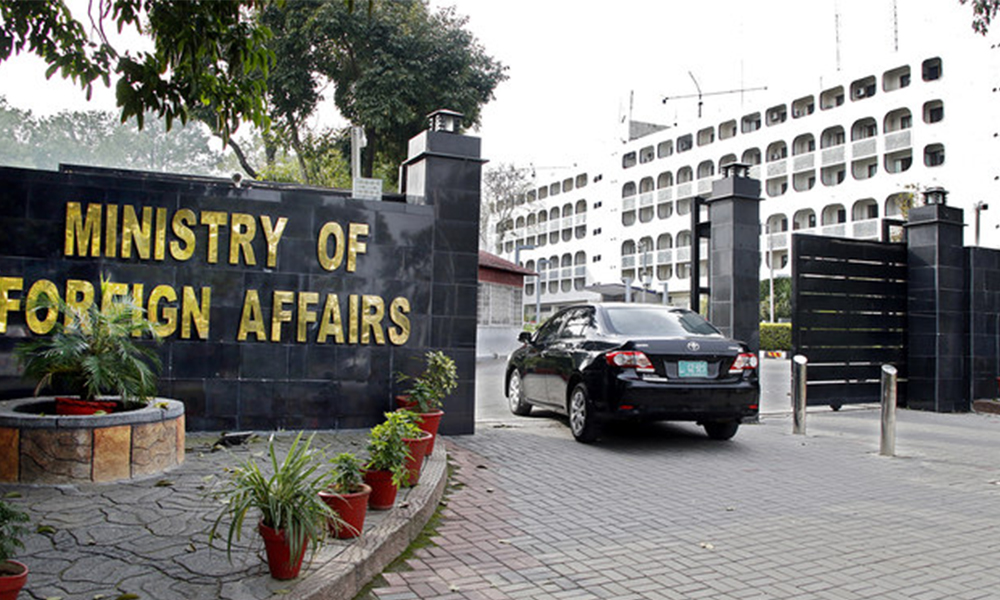
Pakistan on Friday summoned Afghan Deputy Head of Mission in Islamabad to convey “strong demarche” over a deadly attack on a military camp in North Waziristan District that killed four Pakistani soldiers.
In a statement, Pakistan’s Ministry of Foreign Affairs said the attack was carried out by a faction of Tehreek-i-Taliban Pakistan (TTP).
The statement said that Pakistan conveyed “grave concern over the continued support and facilitation” provided by the Islamic Emirate to TTP.
Pakistan has demanded “a full investigation and decisive action against the perpetrators and facilitators of the terrorist attacks launched against Pakistan from Afghan soil.”
It urged the Islamic Emirate “to take immediate, concrete and verifiable measures against all terror groups operating from its territory, including their leadership, and deny the continued use of Afghan soil for terrorism against Pakistan.
According to the statement, the Islamic Emirate has been “categorically informed that Pakistan reserves the right to defend its sovereignty and protect its citizens, and will take all necessary measures to respond to terrorism originating from Afghan soil.”
Pakistani officials have repeatedly claimed that attacks in the country are originated from Afghan soil, a charge the Islamic Emirate denies.
Latest News
Uzbek president stresses Afghanistan’s role in regional economic projects

President of Uzbekistan Shavkat Mirziyoyev has underscored Afghanistan’s continued importance in regional cooperation, saying the country remains one of the key areas of interaction among regional partners.
Addressing the first summit of the “Central Asia Plus Japan” dialogue, Mirziyoyev said participating countries share a common aspiration to see Afghanistan become peaceful, stable, and oriented toward meaningful development.
The Uzbek president praised Japan’s longstanding and consistent support for Afghanistan, noting that Tokyo has for many years been among the leading donors and partners assisting the Afghan people.
He expressed confidence that coordinated efforts and joint contributions by regional countries and Japan would help improve living standards in Afghanistan, advance socio-economic and infrastructure development, and facilitate the country’s active involvement in regional economic projects.
Latest News
Japan allocates nearly $20 million in humanitarian aid for Afghanistan

The Embassy of Japan in Afghanistan announced on Friday that the country has allocated $19.5 million in humanitarian assistance to Afghanistan.
In a statement, the Japanese Embassy said it hopes the aid will help bring positive change to the lives of vulnerable Afghans.
According to the statement, the assistance will cover the basic humanitarian needs of vulnerable communities in Afghanistan.
The embassy added that the aid will be delivered through United Nations agencies, international organizations, and Japanese non-governmental organizations operating in Afghanistan.
Japan’s total assistance to Afghanistan since August 2021 has reached more than $549 million.
-

 Latest News4 days ago
Latest News4 days agoIEA supreme leader stresses enforcement of Sharia law and sincere public service
-

 Sport4 days ago
Sport4 days agoILT20: Sharjah Warriorz secure 11-run victory over Gulf Giants
-
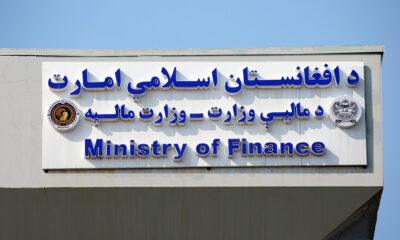
 Business4 days ago
Business4 days agoAfghanistan, India discuss expanding investment opportunities
-

 International Sports3 days ago
International Sports3 days agoIPL 2026: Teams take shape after auction as franchises balance star power and depth
-

 Sport4 days ago
Sport4 days agoAbu Muslim Farah crowned champions of fifth season of Afghanistan Champions League
-

 International Sports3 days ago
International Sports3 days agoILT20: Abu Dhabi Knight Riders end Desert Vipers’ unbeaten run in dramatic one-run win
-

 Latest News4 days ago
Latest News4 days agoEU and IFC launch €5 million program to support Afghanistan’s private sector
-
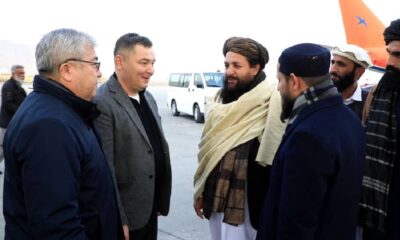
 Latest News4 days ago
Latest News4 days agoHigh-level Kyrgyz delegation arrives in Kabul


